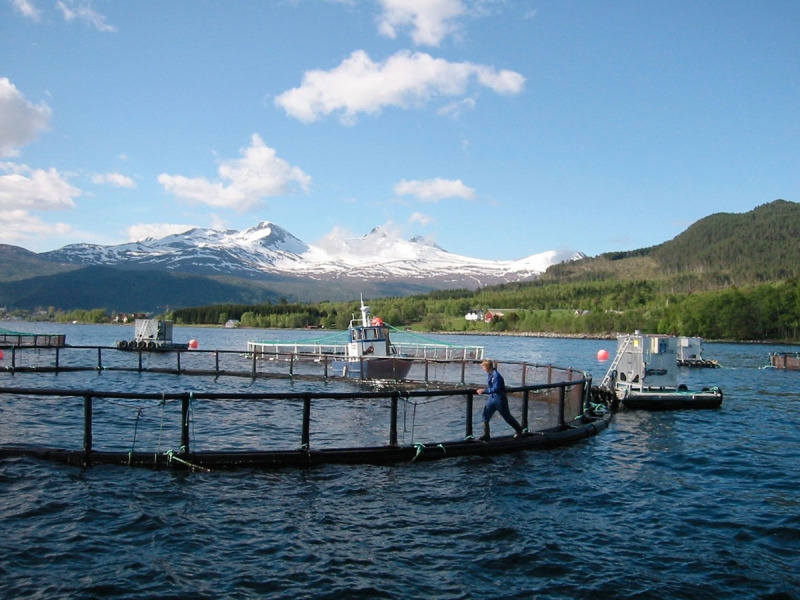Gland, Switzerland – WWF has welcomed the creation of a new salmon aquaculture sustainability initiative as the precursor to continued and dramatic reductions in the environmental and social impacts of producing one of the world’s most popular farmed fish.
Under the umbrella of The Global Salmon Initiative (GSI), the CEOs of some 15 leading global salmon producers announced a commitment today in Trondheim, Norway, to certify their farms to the Aquaculture Stewardship Council (ASC) standard by 2020. This sustainability initiative is seen by WWF as the most promising development yet of a near decade long process of engaging with producer, processor, retailer, community, civil society and consumer stakeholders in the industry.
“This is a game-changer,” said Dr. Jason Clay, who chairs WWF’s Global Initiative for Market Transformation. “The salmon sector is finally working together and embracing sustainability. This is going to radically change aquaculture – and have ripple effects in the entire global food industry.”
“WWF helped launch the Salmon Aquaculture Dialogues nine years ago, and we’re happy to see that GSI is using the outcome of that comprehensive multi-stakeholder process—the ASC Salmon Standard—as its global benchmark. This commitment shows that these companies see sustainability as a pre-competitive issue, one that they must work on together to make progress more quickly.”
“The combined impact of these companies – representing 70% of global farmed salmon production– will drastically reduce the impact of salmon production on some of the world’s most ecologically important regions.”
“Five years ago, global aquaculture production surpassed wild caught as the primary source of seafood consumed by humans. Two years ago aquaculture production, by volume, surpassed global beef production. As demand for farmed seafood increases on a finite planet with limited resources, production systems will have to become more efficient and do more with less.”
“As these companies progress on their sustainability journey, WWF will assist and support them as appropriate. This might include helping them assess their compliance with the ASC standard, develop systems of continuous improvement, measure performance and share lessons learned, technology and better practices.”
Standard stays up to date
The ASC Salmon Standard directly addresses many of the key issues raised in relation to salmon aquaculture. Regular reviews of the standard with stakeholder participation and public consultation will ensure that the standard remains updated in line with state-of-the-art science, developments in techniques and management practices.
The ASC Salmon Standard already requires cooperation between different producers through requirements for Area Based Management to monitor and reduce impacts on coastal communities, coastal environments and wild salmon populations. It also mandates a high level of farm level restrictions and reporting on fish escapes, seal and other predator control measures, chemical, medicine, nutrient and waste releases and parasite and disease control. The standard also prohibits any preventive use of antibiotics.
Adherence to the standard will also reduce salmon farming demand on wild caught fisheries for fish oil and other feed. The standard also excludes genetically modified salmon and requires disclosure of the use of any transgenic GMO material used in feed.
Certification to the ASC salmon aquaculture standard is conducted by independent certifiers who are regularly audited by an accreditation body and whose recommendations can be subject to challenge and review.














